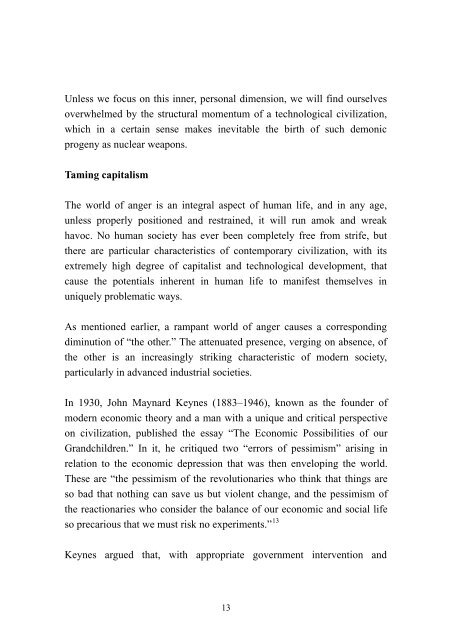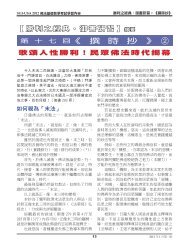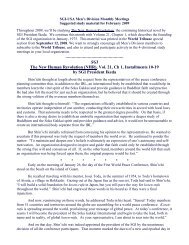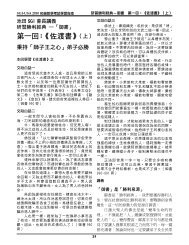Restoring the Human Connection: The First Step to ... - SGI-USA
Restoring the Human Connection: The First Step to ... - SGI-USA
Restoring the Human Connection: The First Step to ... - SGI-USA
You also want an ePaper? Increase the reach of your titles
YUMPU automatically turns print PDFs into web optimized ePapers that Google loves.
Unless we focus on this inner, personal dimension, we will find ourselvesoverwhelmed by <strong>the</strong> structural momentum of a technological civilization,which in a certain sense makes inevitable <strong>the</strong> birth of such demonicprogeny as nuclear weapons.Taming capitalism<strong>The</strong> world of anger is an integral aspect of human life, and in any age,unless properly positioned and restrained, it will run amok and wreakhavoc. No human society has ever been completely free from strife, but<strong>the</strong>re are particular characteristics of contemporary civilization, with itsextremely high degree of capitalist and technological development, thatcause <strong>the</strong> potentials inherent in human life <strong>to</strong> manifest <strong>the</strong>mselves inuniquely problematic ways.As mentioned earlier, a rampant world of anger causes a correspondingdiminution of “<strong>the</strong> o<strong>the</strong>r.” <strong>The</strong> attenuated presence, verging on absence, of<strong>the</strong> o<strong>the</strong>r is an increasingly striking characteristic of modern society,particularly in advanced industrial societies.In 1930, John Maynard Keynes (1883–1946), known as <strong>the</strong> founder ofmodern economic <strong>the</strong>ory and a man with a unique and critical perspectiveon civilization, published <strong>the</strong> essay “<strong>The</strong> Economic Possibilities of ourGrandchildren.” In it, he critiqued two “errors of pessimism” arising inrelation <strong>to</strong> <strong>the</strong> economic depression that was <strong>the</strong>n enveloping <strong>the</strong> world.<strong>The</strong>se are “<strong>the</strong> pessimism of <strong>the</strong> revolutionaries who think that things areso bad that nothing can save us but violent change, and <strong>the</strong> pessimism of<strong>the</strong> reactionaries who consider <strong>the</strong> balance of our economic and social lifeso precarious that we must risk no experiments.” 13Keynes argued that, with appropriate government intervention and13
















